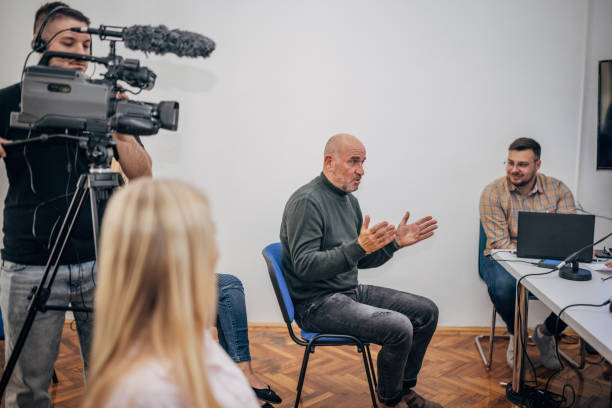The world of journalism often involves exposing oneself to horrific events – war zones, violent protests, human suffering, and crisis situations. Journalists are expected to maintain an objective and resilient outlook while reporting, yet the trauma they witness can leave deep scars.
Post-traumatic stress disorder (PTSD) is a common consequence of such experiences, and journalists can struggle to process the overwhelming emotions linked to their work.
Counsellors must offer practical and emotional support in a way that resonates with these resilient yet vulnerable individuals.
Recognising PTSD in Journalistic Clients
The first step is to recognise the signs early. PTSD manifests differently in everyone, but you may notice that your clients often display heightened anxiety and emotional numbness.
They might appear hypervigilant or disengaged, and their work may become an outlet for avoidance or compulsive behaviour. Pay attention to their reluctance to discuss certain topics or their tendency to bottle up feelings rather than openly engage with you.
Enrich your scroll with one more read we think is worth it.
Using Trauma-Informed Counselling Techniques
Trauma-informed counselling emphasises understanding the impact of trauma on a client’s life and creating a therapeutic environment that encourages safety and trust.
In the case of journalists, recognising their unique experiences is key. Avoid asking them to recount traumatic events in detail unless they feel ready to do so.
Instead, focus on empowering them by exploring their emotions surrounding the trauma, and provide them with coping mechanisms that prioritise self-care.
Techniques like grounding exercises and cognitive behavioural strategies can help them process their emotions and reduce feelings of helplessness. Always make sure that you communicate in an empathetic and non-judgmental manner.
Building a Safe Therapeutic Relationship
Journalists may have difficulty opening up, especially if they are conditioned to be stoic in the face of crisis. To encourage trust, create an atmosphere where they feel listened to without fear of judgment.
Be patient and allow them time to unpack their experiences at their own pace. Remember, journalists are skilled at managing stressful situations, and they might feel uncomfortable in an environment that requires emotional vulnerability.
Establish boundaries early on, but stay consistent in providing a safe space where they can express themselves freely. Your role is to guide them through the process, not to force any rapid disclosure of painful memories.
Protecting Your Practice
The emotional demands of listening to traumatic stories can be taxing. As part of protecting your practice, ensure you have adequate support systems in place.
This includes accessing regular supervision, as well as having the right level of counsellors’ insurance in case any unexpected legal challenges arise. Your insurance could cover professional indemnity, which safeguards you against any potential disputes or claims related to your practice.
Continuing Professional Development and Peer Support
The complexity of supporting clients with PTSD means that counsellors must continuously enhance their skills. Take part in professional development opportunities such as workshops and courses dedicated to trauma and PTSD.
Engaging in peer support groups with other professionals is also invaluable. These communities offer a chance to share experiences, discuss new strategies, and receive advice on difficult cases.
Keeping yourself informed and connected will help you feel supported in your work and enable you to offer the best care to your clients.
Browse all categories in one place by returning to 2A Magazine.







